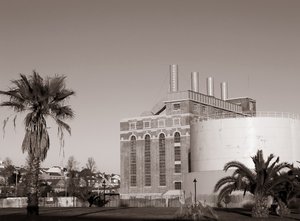When you are involved in a Boston mesothelioma case, questions may arise regarding what your employer’s duty was in protecting you from unsafe products. It is often hard to think that you were working with fatal substances and no one warned you. Having an experienced Boston mesothelioma attorney to help investigate the facts and recognize the legal issues in your case is essential to recovering the award you deserve.

In O’Neil v. Crane, the court discusses the issue surrounding the duty employers owe to their employees. The issue is specifically whether a manufacturer has a duty to protect employees from foreseeable harm associated with the products used in the production of their items.
Defendants are manufacturers of valves and pumps used in Navy warships. They would buy external insulation and internal gaskets and packing from a third party in order to produce these pumps and valves. These components used by the manufacturers contained asbestos that harmed the plaintiff in this case. Plaintiff was exposed to these items containing asbestos in her capacity as an employee for the defendants. Plaintiff suffered harm associated with this asbestos and subsequently died.
Plaintiff’s estate filed a lawsuit against her former employers for wrongful death, claiming that the defendants should be held strictly liable in addition to negligence because it was foreseeable that their workers would be exposed to and harmed by the asbestos in the components they used in manufacturing the pumps and valves.
Strict liability is a form of liability common in torts, which is classified as a civil wrong. This type of liability is very common in product liability cases because there is no need to prove negligence or intent. In order to prove that the defendant is guilty under strict liability, the plaintiff must prove that the defendant is responsible for the civil wrong that occurred which harmed the plaintiff.
On the other hand, negligence requires the plaintiff to prove that the defendant owed a duty of care to the plaintiff, that the defendants breached that duty, that the breach of duty was the direct and proximate cause of the plaintiff’s injury, and there were damages.
The question presented to this court was whether the product manufacturer breached their duty to their employees where there were injuries to these employees caused by the products and parts that were made by a third party, but used by the defendant to produce their products.
The Supreme Court of California held that where the employee of a product manufacturer was harmed because of the products of a third-party manufacturer that was used in the manufacturing of the product by the employer manufacturer, the employer was not liable for harm caused to the employee unless the defendant’s own products contributed substantially to the harm or the defendant participated in creating a substantially harmful combined use of the products.
The court here indicates that this motion for strict liability would expand on the construction of the concept of strict liability, and they refused to do this. The current law in California imposes this strict liability on manufacturers whose products are defective and cause injury. However, the court distinguishes imposing liability in those cases from the plaintiff’s contention in this case where the plaintiff contends that the defendant is liable for not foreseeing the injuries caused by products manufactured by another company.
As to the question of negligence, this court indicated that the manufacturer had no duty to warn of potential hazards in third-party parts used in their manufacturing when the hazards were not integral to the products design. It is considered unlikely that manufacturers would be able to ensure that there were no unknowable risks or hazards lurking in every item they used in the manufacturing of their products.
Therefore, plaintiff lost the case as to the two proposed theories of imposition of liability.
Each state has different laws regarding liability in mesothelioma cases. Having an experienced attorney to make the arguments for you can give you the peace of mind you need to concentrate on getting better.
Jeffrey Glassman Injury Lawyers provides representation for victims exposed to asbestos who have been diagnosed with mesothelioma in Boston and throughout Massachusetts and New England. Call (617) 777-7777 for a free and confidential consultation to discuss your rights.
More Blog Entries:
Daley v. A.W. Chesterton Discusses Remedies for Multiple Diseases Associated with Asbestos Exposure, March 8, 2012
 Mesothelioma Lawyers Blog
Mesothelioma Lawyers Blog

